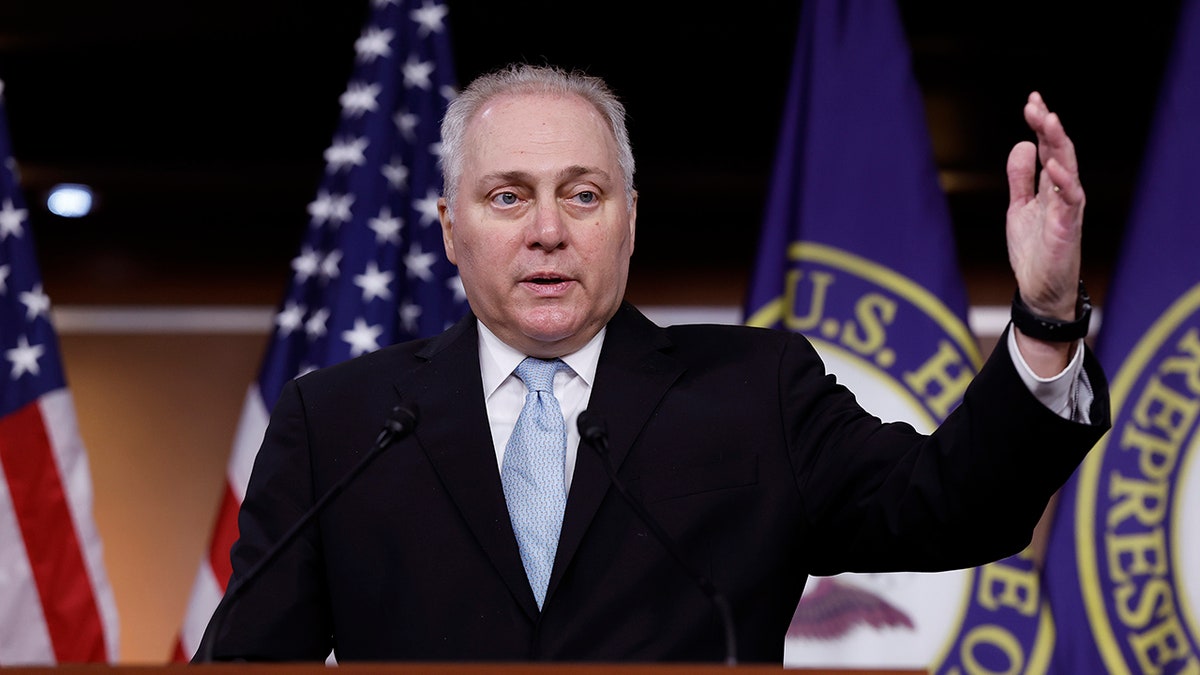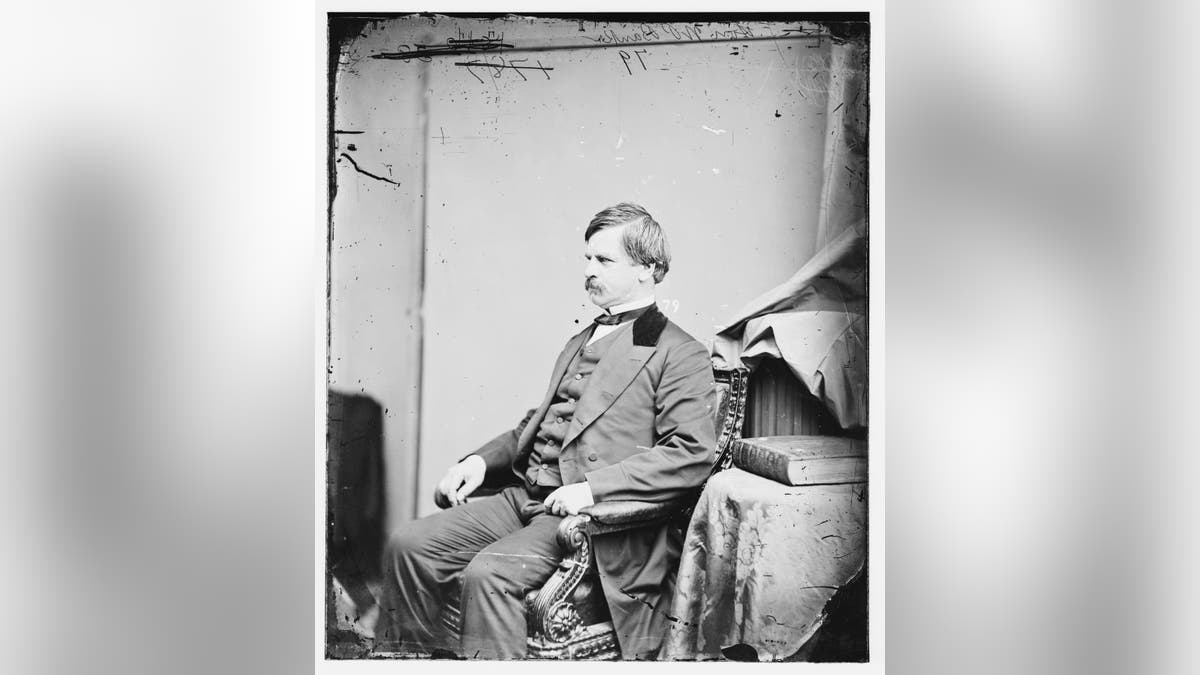House Judiciary Committee Chairman Jim Jordan, R-Ohio, faces an unclear path to the speakership after securing the GOP nomination.
In the chaotic fight to replace recently-ousted Speaker Kevin McCarthy, R-Calif., Jordan has been making calls to shore up support for his bid after House Majority Leader Steve Scalise, R-La., the initial nominee, bowed out due to lacking support in the divided Republican caucus.
However, Jordan does not necessarily need to get the required House majority to take the gavel. The House has elected a speaker a few times in history on a plurality rather than an outright majority.
LEADING MODERATE WHO VOWED TO OPPOSE JORDAN FLIPS IN MAJOR VICTORY FOR SPEAKER NOMINEE

House Judiciary Committee chairman Jim Jordan, R-Ohio, was selected as the GOP’s nominee for House speaker to replace the recently-ousted Speaker Kevin McCarthy, R-Calif. (AP Photo/Jose Luis Magana)
The House is allowed to decide how the speaker election is held, according to House Practice, so changing the threshold is an option on the table.
In fact, there have been two plurality elections to decide the House speaker in American history.
In 1856, during the 34th Congress ahead of the Civil War, the House faced a fractured chamber after concessions and dividing lines over slavery had been burned into the sand.
A fledgling Republican Party, a decimated Democratic Party, the nativist American (Know-Nothing) Party and a declining Whig Party could not decide on a top House lawmaker.
HOUSE OF REPRESENTATIVES TO VOTE ON NEW SPEAKER TUESDAY
When voting began, 21 members received votes backing them for speaker on the first ballot, throwing the House into a deadlock that lasted two months.
Amid the votes, American Party Rep. Felix Zollicoffer of Tennessee introduced and passed a House resolution having the three top candidates for speaker to “publicly state their opinions of Congress’ recent actions on the spread of slavery to the western territories.”
Even after the questioning session the House could not decide on a speaker.
That deadlock was broken when the House voted to reduce the threshold to elect the speaker from the traditional simple majority to a plurality election.

Rep. Jim Jordan has been making calls for days to shore up support for his bid after House Majority Leader Steve Scalise, R-La., pictured here, the initial nominee, bowed out of the speaker’s race. (Anna Moneymaker/Getty Images)
After 133 votes, Speaker Nathaniel Banks of the Know-Nothings was elected as speaker of the 34th Congress with 103 votes backing him.
Before then, during the 31st Congress in 1849, the House was without a speaker for 19 days with neither the Whigs and Democrats holding a House majority and the Free Soil Party splitting the votes further.
The first ballot was a split one that did not yield a speaker, leading to several weeks of elections to determine the leader of the House.
After 13 ballots, then-Rep. Andrew Johnson of Tennessee proposed a resolution to lower the speaker election threshold to a plurality as well as an amendment to ballot the election.
The resolution and amendment passed, and Georgia Democrat Rep. Howell Cobb was elected speaker via plurality after 63 votes, three votes after the rules had been changed.
The House Judiciary Committee chairman has made headway, flipping key no votes to support him, but there is still a real chance that his bid will be dashed on the House floor.

After 133 votes, Speaker Nathaniel Banks of the Know-Nothings was elected as speaker of the 34th Congress with 103 votes backing him and slavery being a key deciding issue. (Getty Images)
Scalise faced a problem that Jordan is working to solve: getting the numbers up in a slim majority to propel him behind the gavel.
Historically, there is precedent for a plurality speaker election, but the move is risky if the math does not add up.
CLICK HERE TO GET THE FOX NEWS APP
Any miscalculation on votes in a plurality election would run the risk of the GOP inadvertently handing the speakership to the Democrats, should GOP members break from the party.
However, should the GOP need a nuclear option to choose a new speaker, historical precedent provides one.
Fox News Digital’s Aubrie Spady and Matteo Cina contributed reporting.
Read More: World News | Entertainment News | Celeb News
247
